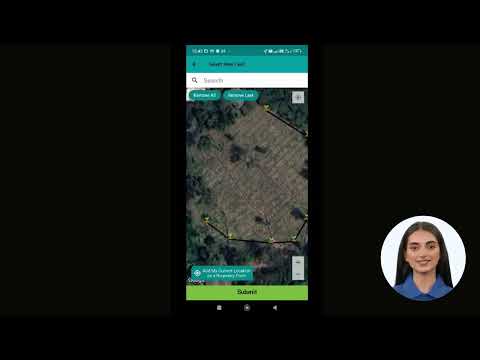Empowering Wisconsin’s Future: 9 Ways to Support Local Ag Teachers and FFA Programs

“FFA programs in Wisconsin engage over 21,000 students annually in agricultural education and leadership development.”
Welcome to our comprehensive guide on empowering Wisconsin’s future through supporting local agricultural education programs and Future Farmers of America (FFA) initiatives. As we delve into the heart of America’s Dairyland, we’ll explore nine impactful ways to nurture the next generation of agricultural leaders. Our journey through Wisconsin’s rich farming heritage and innovative educational landscape will showcase how communities can come together to foster growth, sustainability, and resilience in the agricultural sector.
The Vital Role of Agricultural Education in Wisconsin
Wisconsin’s agricultural industry is more than just a cornerstone of the state’s economy; it’s a way of life that has shaped communities for generations. As we face the challenges of the 21st century, the importance of robust agricultural education programs and FFA chapters cannot be overstated. These programs are the breeding grounds for innovation, leadership, and sustainable farming practices that will carry our rural communities into the future.
Let’s explore why supporting local ag teachers and FFA programs is crucial for Wisconsin’s agricultural resilience:
- Cultivating Future Leaders: Agricultural education programs and FFA chapters are not just about farming; they’re about developing well-rounded individuals with strong leadership skills, business acumen, and scientific knowledge.
- Promoting Agricultural Literacy: In an increasingly urban world, these programs help bridge the gap between consumers and producers, fostering a better understanding of where our food comes from and how it’s produced.
- Driving Innovation: By exposing students to cutting-edge agricultural technologies and practices, we’re preparing them to tackle future challenges in food production and environmental stewardship.
- Supporting Rural Economies: A strong agricultural education system helps retain talent in rural areas, supporting local businesses and maintaining vibrant communities.
Now, let’s dive into the nine ways we can support our local ag teachers and FFA programs to ensure a bright future for Wisconsin agriculture.
1. Volunteer as a Guest Speaker
One of the most direct ways to support agricultural education programs is by sharing your expertise with students. As a farmer, industry professional, or community leader, you have valuable real-world experience that can bring classroom lessons to life.
- Share your career journey and day-to-day responsibilities
- Discuss current trends and challenges in agriculture
- Offer insights into specific agricultural practices or technologies
By volunteering as a guest speaker, you’re not only enriching the curriculum but also providing students with tangible connections to potential career paths in agriculture.
2. Offer Farm Tours and Hands-On Experiences
There’s no substitute for hands-on learning when it comes to agriculture. By opening your farm or agribusiness to student tours, you’re providing invaluable experiential learning opportunities.
- Showcase modern farming techniques and technologies
- Demonstrate sustainable farming practices
- Allow students to participate in farm tasks when appropriate
These experiences can ignite passion in students and help them visualize their future in agriculture. Plus, it’s a great way to promote agricultural literacy and connect with the next generation of consumers and producers.

3. Support Supervised Agricultural Experiences (SAEs)
Supervised Agricultural Experiences are a cornerstone of agricultural education, providing students with practical, hands-on learning opportunities outside the classroom. Here’s how you can support SAEs:
- Offer internships or part-time employment on your farm or agribusiness
- Mentor students on their entrepreneurial SAE projects
- Provide resources or equipment for student projects
By supporting SAEs, you’re helping students develop essential skills, explore career options, and gain valuable work experience that will serve them well in their future endeavors.
4. Donate Resources and Equipment
Agricultural education programs and FFA chapters often operate on tight budgets. Donating resources can significantly enhance the quality of education and experiences offered to students. Consider donating:
- Gently used farm equipment for hands-on learning
- Seeds, plants, or animals for classroom projects
- Technology tools to enhance digital literacy in agriculture
Your donations can help bridge the gap between classroom learning and real-world application, ensuring students have access to up-to-date resources and equipment.
5. Sponsor FFA Events and Competitions
FFA events and competitions are critical for student development, offering opportunities to showcase skills, network, and gain recognition for their hard work. Supporting these events can take many forms:
- Provide financial sponsorship for local, state, or national competitions
- Offer your expertise as a judge for FFA contests
- Host FFA chapter meetings or events at your farm or business
Your support can help make these valuable experiences accessible to more students, fostering leadership development and career exploration.
6. Advocate for Agricultural Education
Being a vocal advocate for agricultural education and FFA programs can have a significant impact on their success and sustainability. Here’s how you can lend your voice:
- Attend school board meetings to support ag education funding
- Write letters to local and state representatives about the importance of these programs
- Share success stories from local ag programs on social media and in community forums
By raising awareness and garnering community support, you can help ensure that agricultural education remains a priority in Wisconsin schools.
7. Collaborate on Community Projects
Agricultural education programs and FFA chapters often engage in community service projects. Collaborating on these initiatives can benefit both students and the community:
- Partner on local food drives or community gardens
- Support FFA-led environmental conservation projects
- Collaborate on agricultural awareness events for the public
These collaborations not only serve the community but also provide students with valuable project management and leadership experience.
“Agricultural education programs offer students exposure to more than 300 diverse career paths in the agriculture industry.”
8. Support Professional Development for Ag Teachers
Ag teachers play a crucial role in shaping the future of agriculture. Supporting their professional development ensures they stay current with industry trends and best teaching practices:
- Sponsor ag teachers to attend industry conferences or workshops
- Offer job shadowing opportunities for teachers during summer breaks
- Provide industry insights and updates to keep curriculum relevant
Investing in ag teachers’ professional growth ultimately benefits the students and the entire agricultural community.
9. Engage in Agricultural Literacy Initiatives
Promoting agricultural literacy is essential for building public support for the industry and attracting new talent. Here’s how you can contribute:
- Participate in “Ag in the Classroom” programs
- Support or organize agricultural fairs and exhibitions
- Contribute to agricultural literacy materials for schools and libraries
By helping to educate the broader public about agriculture, you’re laying the groundwork for a more informed and supportive community.
The Impact of Your Support
Let’s take a moment to reflect on the significant impact your support can have on local ag teachers, FFA programs, and the future of Wisconsin agriculture:
| Support Method | Impact |
|---|---|
| Volunteer as Guest Speaker | Provides real-world insights, inspires career paths, enhances curriculum |
| Offer Farm Tours | Offers hands-on learning, connects theory to practice, promotes ag literacy |
| Support Supervised Agriculture Experiences | Develops practical skills, fosters entrepreneurship, builds work ethic |
| Donate Resources and Equipment | Enhances learning experiences, provides access to modern technology |
| Sponsor FFA Events | Encourages skill development, boosts student confidence, supports networking |
| Advocate for Agricultural Education | Ensures program sustainability, raises community awareness, secures funding |
| Collaborate on Community Projects | Builds leadership skills, strengthens community ties, showcases ag’s value |
| Support Teacher Professional Development | Enhances teaching quality, keeps curriculum current, benefits students |
| Engage in Agricultural Literacy Initiatives | Educates the public, builds industry support, attracts new talent to ag |
By implementing these support methods, we collectively contribute to a stronger, more resilient agricultural sector in Wisconsin. Each action, no matter how small, plays a part in shaping the future of our state’s agriculture and rural communities.
Leveraging Technology in Agricultural Education
As we support local ag teachers and FFA programs, it’s crucial to recognize the role of technology in modern agriculture. Integrating cutting-edge tools and platforms into agricultural education can significantly enhance learning experiences and prepare students for the tech-driven future of farming.
One such innovative tool is Farmonaut, a pioneering agricultural technology company that offers advanced, satellite-based farm management solutions. While Farmonaut is not directly involved in educational programs, its technology represents the kind of innovation students should be exposed to in their agricultural studies.
Here’s how technology like Farmonaut’s can benefit agricultural education:
- Demonstrating real-time crop health monitoring using satellite imagery
- Introducing students to AI-driven farm advisory systems
- Exploring the concept of blockchain in agricultural supply chains
- Teaching resource management and sustainability through tech-enabled solutions
By familiarizing students with such advanced technologies, we’re preparing them for the future of precision agriculture and sustainable farming practices.
Explore Farmonaut’s innovative solutions:
For those interested in integrating agricultural technology into educational programs or research, Farmonaut offers API access. Learn more about their API and check out the API Developer Docs for detailed information.
The Role of Community in Sustaining Agricultural Education
The success of agricultural education programs and FFA chapters in Wisconsin is deeply rooted in community support. As we’ve explored various ways to contribute, it’s important to remember that the collective effort of the entire community is what truly makes a difference.
Here are some additional ways communities can come together to support agricultural education:
- Local Business Partnerships: Encourage local businesses to offer job shadowing opportunities or sponsor FFA events.
- Community Mentorship Programs: Establish mentorship connections between experienced farmers and ag students.
- Agricultural Scholarships: Create community-funded scholarships for students pursuing agricultural studies.
- Farm-to-School Initiatives: Support programs that connect local farms with school cafeterias, providing fresh produce and educational opportunities.
- Agricultural Heritage Projects: Involve students in documenting and preserving local agricultural history and traditions.
By fostering a strong community network around agricultural education, we create a supportive ecosystem that nurtures the next generation of agricultural leaders, innovators, and stewards of the land.
Addressing Challenges in Agricultural Education
While we celebrate the strengths of agricultural education programs in Wisconsin, it’s also important to address the challenges they face. By recognizing these issues, we can better target our support efforts:
- Funding Constraints: Many ag programs struggle with limited budgets for equipment, field trips, and program expansion.
- Teacher Retention: Attracting and retaining qualified ag teachers can be challenging, especially in rural areas.
- Changing Demographics: As rural populations shift, some areas face declining enrollment in ag programs.
- Keeping Pace with Technology: Rapid advancements in agricultural technology can be difficult for schools to keep up with.
- Balancing Traditional and Modern Agriculture: Programs must find ways to honor traditional farming practices while embracing modern innovations.
By focusing our support efforts on these areas, we can help strengthen agricultural education programs and ensure they remain relevant and impactful for years to come.
The Future of Agricultural Education in Wisconsin
As we look to the future, it’s clear that agricultural education in Wisconsin is poised for exciting developments. By continuing to support local ag teachers and FFA programs, we’re investing in a future where:
- Agriculture remains a cornerstone of Wisconsin’s economy and culture
- Innovative farming practices lead to increased sustainability and productivity
- A new generation of diverse, skilled professionals enters the agricultural workforce
- Rural communities thrive through strong agricultural leadership and entrepreneurship
- Consumers have a deeper understanding and appreciation for agriculture’s role in their lives
Together, we can create a bright future for Wisconsin agriculture, one student, one classroom, and one community at a time.
Conclusion: Your Role in Shaping Wisconsin’s Agricultural Future
As we’ve explored the nine ways to support local ag teachers and FFA programs, it’s clear that each of us has a role to play in empowering Wisconsin’s agricultural future. Whether you’re a farmer, business owner, educator, or community member, your contributions can make a significant impact on the lives of students and the future of our state’s agriculture industry.
By volunteering, offering resources, advocating for programs, and engaging with agricultural education initiatives, we collectively create a strong foundation for the next generation of agricultural leaders. Remember, supporting these programs isn’t just about maintaining Wisconsin’s agricultural heritage; it’s about innovating for a sustainable and prosperous future.
We encourage you to take action today. Reach out to your local ag teacher or FFA chapter to see how you can get involved. Share this blog with others in your community to spread awareness about the importance of supporting agricultural education. Together, we can ensure that Wisconsin remains at the forefront of agricultural excellence for generations to come.
FAQs
- Q: How can I find my local FFA chapter to offer support?
A: You can visit the Wisconsin FFA website or contact your local high school’s agriculture department for information on nearby FFA chapters. - Q: Do I need to have a farming background to volunteer in ag education programs?
A: Not at all! Many aspects of agricultural education benefit from diverse perspectives, including business, science, and technology backgrounds. - Q: How can small businesses contribute to supporting ag education?
A: Small businesses can offer internships, sponsor FFA events, provide job shadowing opportunities, or donate resources for classroom projects. - Q: Are there tax benefits for donating to agricultural education programs?
A: Many donations to educational programs are tax-deductible. Consult with a tax professional for specific advice on your situation. - Q: How can I advocate for agricultural education at the policy level?
A: You can contact your local and state representatives, participate in school board meetings, and join agricultural advocacy groups to voice support for ag education policies and funding.






